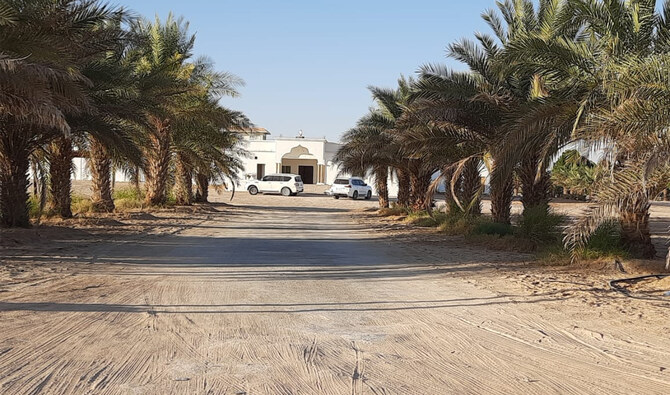MAKKAH: Thabhloten Center, part of Al-Ahsa governorate in the Eastern Province and over 1,500 km from Riyadh and 1,200 km from Al-Ahsa, is Saudi Arabia’s most remote village.
Thabhloten, considered the largest sand basin in the world, is characterized by towering sand dunes on all sides, rich natural resources, and lakes in the middle.
It is the most remote village in Saudi Arabia, with few paved roads and connections to cities in the Kingdom.
Mubarak bin Klot, a resident of Thabhloten, said that the locals speak Arabic, contrary to the misconception that they converse in Mehri.
He said people have lived in the area for generations and have a connection to the land. “We grew up on its hills and were shaped by its vast landscape.”
He also spoke fondly of the first documented journey across the Empty Quarter in 1930, which included British travelers and explorers.
This included Thomas Bertram, with the support of Sheikh Saleh bin Klot Al-Rashidi.
This historic expedition took place during the reign of King Abdulaziz, the founder of the Kingdom.
He continued: “Seventeen years later, the journey was undertaken once again by Wilfred Thesiger, whom the Bedouins called Mubarak bin London.
“He crossed the Empty Quarter with my grandfather, Mohammed bin Saleh bin Klot, traveling from Manukh to the Emirates, then to Oman, and finally to Mukalla, successfully traversing the entire Empty Quarter alongside three companions from the same tribe.
“These remarkable journeys were thoroughly documented in Britain, and we have copies of the records.”
He added that Thabhloten is the only village in the Empty Quarter, with around 436 properties and a population of just 400 people, all from the Al-Rashid tribe.
The villagers are primarily Bedouins, whose lives are shaped by the natural elements, relying on the weather, grazing lands, water sources, and livestock.
He said the village has produced several educated individuals, with many having graduated from various universities.
Bin Klot said that he completed his initial education in the village before pursuing a degree in political science in Jordan.
He chose to return to his village, driven by a strong sense of attachment and the deep significance the village holds for its people.
Bin Klot said the nearest city where residents can access supplies, medical care, and essential goods is Al-Ahsa. Members of the community face significant challenges to cover these distances.
He said the roads leading to and from the village are challenging, unpaved, and often impassable.
Despite this, he said there was a strong community spirit, with people sharing resources.
Bin Klot said the government supplies the village with fuel to ensure electricity is provided to all its residents.
He said people prefer to live in the area because of its mild winters and compelling natural beauty.
When asked about children leaving for opportunities elsewhere, he said these decisions were up to their guardians.
Some families have moved to cities in the Kingdom, while others preferred to stay.

















